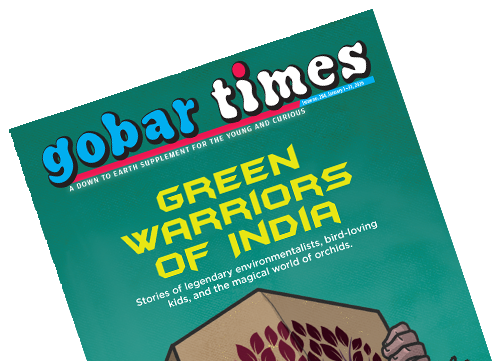
“Why didn’t you spot the Tiha today, dear?” That’s what my mother used to remind me on the New Year eves, when I was a little child like you. The Indian Roller bird, or the Tiha in Odia, is a very good omen. Believed to be a harbinger of happiness, sighting it is considered auspicious, especially at the beginning of any major life event. In fact, such is the faith in its sanctity that its feathers are preserved as lucky charms. Do you know Odisha, Telangana, and Karnataka have also declared it as their state bird?

If there is ever a bird that can rival even a hulk in roaring aloud, then that birdy has to be the Brown-Headed Barbet. This little creature’s blaring decibels can screech through the morning silence and can knock anyone out of their afternoon siesta as well. Its challenging, almost enticing, avian call proceeds like: tur-r-r-r kutrook-kutrook-kutrook...

Tribal people are often potrayed as underdeveloped. But history actually shows something else. For the past few months, an uneasy calm is prevailing over the lives of Huaoranis—an Ecuadorian tribe living in the deep and dark forests of Amazon. Recently, they spot some outsiders in the forest. Not only that, the other day they saw a big bird with a deafening sound hovering over their village. This big bird was in fact a helicopter, which for us is as familiar as birds flying in the vast, blue sky. But for the Huaoranis, it only meant one thing...

Did food shape our history or history shape our diet? What role does climate play in the way we eat today? How did our food habits shape up? Read on to find out. Kuku jumps from her bed the moment the doorbell rings. Today is her birthday and she is excitedly waiting to meet her friends in the evening. She opens the door and sees a delivery man carrying a big backpack. He smiles at Kuku and hands her a package. Kuku looks at it and screams, “Ma! Nanaji’s gift has arrived!”

It won’t be long before the media declares the black rhino extinct. Due to a high price of the animal’s horn, (a whopping Rs. 43 lakhs per kilogram) it is being driven to extinction by poachers. So much so that there are only 5,000 of them left. The rhino horn is a lucrative business opportunity for the poachers who sell the horn in China, Vietnam and South Korea, where its powder is used for its supposed medicinal properties.

